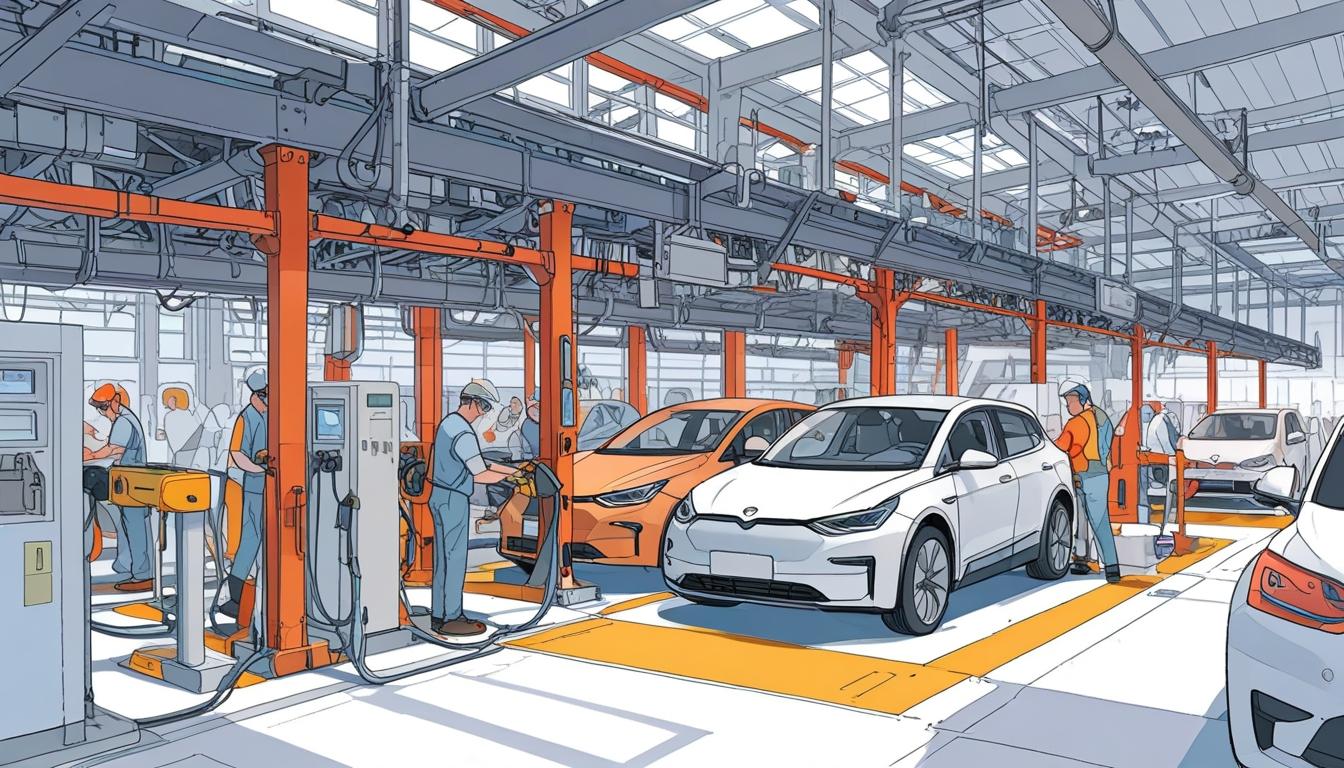The UK government has moved to relax regulations affecting the car manufacturing industry in response to recent developments surrounding tariffs imposed by the United States and the imminent ban on petrol and diesel vehicles due in 2030. Transport Secretary Heidi Alexander outlined these changes on Sunday, aiming to safeguard jobs within the sector while also facilitating a smoother transition for manufacturers towards an all-electric future.
The backdrop of this regulatory adjustment is the UK government's ban on the production of new petrol and diesel cars, originally set for 2040 and then pushed back to 2035 by the previous Conservative administration. The recent shift reinstated the 2030 deadline under Labour's commitment outlined in its manifesto for the next election.
These developments come in the wake of President Donald Trump's announcement of a 25% tariff on vehicles imported into the US, a significant market for the UK's automotive industry, which is now facing considerable uncertainty. The government articulated its intent to assist the British car industry by providing greater flexibility to manufacturers as they adapt to these new economic pressures.
In her comments, Alexander insisted the government remains dedicated to its 2030 target while simultaneously implementing “practical reforms” to allow firms to meet this goal without incurring hefty fines. Among the modifications to existing mandates is a relaxation of the electric vehicle (EV) sales targets, which stipulates that a certain percentage of a manufacturer's vehicles must be electric. To alleviate concerns about potential fines, which could amount to up to £15,000 per non-compliant car, this figure will be reduced to £12,000.
In addition to these changes, smaller UK manufacturers, including Aston Martin and McLaren, are permitted to produce petrol cars beyond the 2030 deadline, while some hybrid vehicles are allowed to remain on sale until 2035. As part of its broader strategy, the government has also committed to keep support for the car industry under review as the impacts of the new tariffs on exports become more clearly defined.
Prime Minister Sir Keir Starmer, speaking from the West Midlands, emphasised that these measures would "boost growth that puts money in working people's pockets" and help "home-grown firms" tap into the global market. Nevertheless, these announcements have provoked mixed reactions among opposition parties. Andrew Griffith, the shadow business secretary, described the measures as “half baked,” questioning their efficacy against the backdrop of the substantial tariffs imposed by the US.
The UK’s automotive sector faces significant challenges, with leaders in the industry expressing concerns over the sluggish transition of drivers to electric vehicles. High initial costs and a limited charging infrastructure have hindered the shift toward electric models, posing risks to meeting the impending deadlines.
As companies navigate this evolving landscape, Jaguar Land Rover, a major player in the UK automotive market based in Coventry, announced a temporary halt to its shipments to the US in April to reassess the trading terms affected by the tariffs. This comes amid the introduction of a separate 10% tariff imposed on UK imports, as part of a wider strategy affecting several leading economies.
Overall, the adaptations announced by the government signal an urgent response to the evolving economic landscape shaped by international trade policies and the push towards electric vehicle adoption in the UK.
Source: Noah Wire Services
